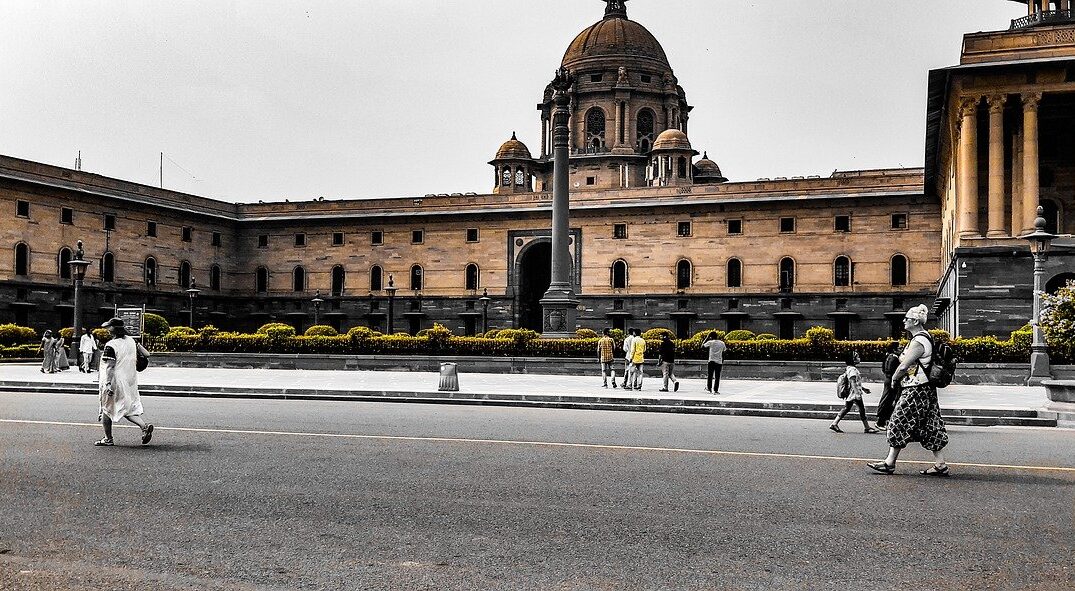Questions from MPs are now widely brushed aside by the government. Meanwhile, in recent years, more Bills have been passed without debate, fewer Bills have been referred to parliamentary committees and an increased number of ordinances have been passed in order to sidestep Parliament altogether.
The winter session of Parliament uncovered not just crude party politics but also deeper problems relating to Indian lawmakers’ attitude towards the legislature. Both the Opposition and the government took rigid stances over the suspension of 12 Rajya Sabha MPs and the demand for resignation from Minister of State for Home Ajay Misra Teni. The impasse led to serious misuse of the Parliament’s time. Despite the need to spend time debating important Bills, MPs failed to reach any compromise.
The chaos in Parliament has strengthened the need for parliamentary reforms in order to make Parliament more efficient and autonomous. There have been concerns over the lack of seriousness accorded to parliamentary questions raised by MPs and the diminishing role of parliamentary standing committees in scrutinising Bills before they are passed. Further, a lack of transparency in the legislative process seems to be the core issue behind political tensions that have disrupted legislative business in the recent winter session.
Opposition MPs have frequently complained that ministers have been evading their questions with “unsatisfactory” and vague responses. “The Government is blindly copying [and] cut pasting the answers,” said DMK leader and Lok Sabha MP, K. Kanimozhi, following her failed attempts at securing a genuine answer from the Law Ministry, to her question regarding the status of the Women’s Reservation Bill. “The ministers are taking the entire exercise very lightly.”
Her situation is only reflective of the neglect that Opposition MPs have been facing in recent times. The situation has revealed a lack of respect for Parliament, as MPs have been unable to foster a sense of accountability amongst those in power.
Diluting Institutional Checks and Balances
Parliamentary committees are critical for unbiased and democratic decision-making as they possess the technical expertise to understand complex matters and also the benefit of time to inspect Bills and budgets closely.
Between 2009 to 2014, 71 percent of all Bills introduced were referred to a parliamentary committee for further scrutiny. This figure has been reduced to an alarming 12 percent in the current Lok Sabha from 2019 to the 2021 monsoon session of Parliament. In fact, data from PRS Legislative Research shows that none of the 15 Bills introduced in the monsoon session was referred to a parliamentary standing committee.
Although the winter session has shown overall improvement, a decline in the importance of parliamentary committees is a dangerous trend and reflects a desire to impetuously pass Bills in a centralised manner. The trend must therefore be reversed in order to maximise parliamentary expertise and to improve the quality of Indian laws.
A fall in the standard of parliamentary debate is another indicator of the need for serious reform in the Indian Parliament. According to a report by the New Indian Express, a total of 20 Bills were passed in the 2021 monsoon session of Parliament either without discussion or just minimal discussion, limited to MPs from the ruling party. In fact, Lok Sabha did not take up a single issue for discussion. “The [Union government] has bulldozed through Bills without discussion and debate. The entire country is witness to the way laws are being passed,” claimed one MP, Manoj Jha.
Another concern identified, which suggests neglect for Parliament, is the rise in ordinances being passed. Ordinance-making gives absolute power to the executive to surpass the legislature and enact laws without the consent of Parliament. According to PRS data, the last couple of years has seen a spike in the number of ordinances being passed by the executive, with 16 in 2019 and 15 in 2020. The main purpose of ordinances is to allow law-making in extraordinary situations. The current government, however, has been accused of using ordinances to pass controversial laws in non-emergency situations.
Strengthening Parliament
Despite assurances from those in power that there is still respect for parliamentary democracy, all the indicators hint that Parliament has been reduced to a stage for laws to be passed in minutes. Having completely misspent the recently concluded winter session of Parliament, both the government and the Opposition should take time to reflect upon how the spirit of parliamentary democracy can be revived.
In order to prevent further deterioration of parliamentary standards, the government should consider codification of parliamentary practices, so that MPs are bound by law to adhere to these standards.
According to data from PRS, the Lok Sabha spent a total of 26.5 hours only – out of a total functioning time of 83.2 hours – to discuss legislation in the recent winter session. This could be prevented by a legal requirement to spend a certain proportion of the available time in each session on discussion and debates. Such a framework would not just ensure relevant scrutiny of Bills and issues but would also discourage MPs from seeking adjournments by creating ruckus while the House is in session.
Further, the dying role of parliamentary committees in scrutinising Bills could be remedied by a requirement that all or most Bills must go through parliamentary committee oversight before being tabled. Strengthening parliamentary norms through codification is thus a crucial step towards ensuring improvement in the quality of laws being passed by Parliament.
Kashvi Singh is a Research Intern at Freedom Gazette. She has recently completed her A-Levels in Political Science, Economics, Mathematics and Geography from Woodford County High School, London. She has a keen interest in politics and development studies and hopes to pursue a degree in Politics, Philosophy and Economics.


